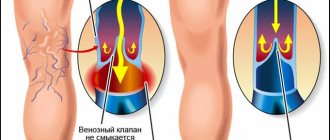Why is calcium important?
Calcium is necessary for a child during intrauterine development. If the mother does not consume enough of this element with food, the fetus “takes” it from her bones and teeth. After a baby is born, calcium enters its body from breast milk or formula. In the future, the lack of this macronutrient can be avoided only with the help of a balanced diet.
Calcium is involved in muscle contraction, activates the production of enzymes and hormones, strengthens vascular walls, affects neuromuscular conduction, regulates acid balance and blood pressure. It is also necessary for the formation of bones and teeth, the regulation of blood clotting, and the normal condition of skin and hair. Calcium has, in addition to all of the above, anti-allergic and anti-inflammatory properties.
A lack of this important element in the body can lead to the development of rickets, stunted growth, various pathologies of the cardiovascular system, frequent fractures, poor posture, anemia and other unpleasant consequences. However, for proper absorption, calcium must enter the body together with other substances, in particular phosphorus and vitamin D.
The best vitamins with calcium from a budget price category
5th place. "Calcium gluconate" manufacturer Pharmstandard-Leksredstva
A universal drug for children over 3 years of age and adults in the form of tablets with the active ingredient calcium gluconate – 500 mg, which improves muscle contraction in muscular dystrophy/myasthenia and reduces vascular permeability. The excipients are potato starch, talc and calcium stearate monohydrate (about 2 g).
The pill taken causes stimulation of the sympathetic nervous system and increases the production of adrenaline; has a moderate diuretic effect.
The average cost is only 33 rubles.
Calcium gluconate" manufacturer Pharmstandard-Leksredstva
Advantages:
- Number of tablets per package;
- Long shelf life – 5 years;
- Suitable for children and adults;
- Budget;
- In free access.
Flaws:
- There are contraindications.
4th place. "Calcium D3 for children" in a dosage of 400 mg, manufacturer Kvadrat-S
Biologically active supplement for strengthening bones for children from 3 years old, replenishes the deficiency of calcium and vitamin D3. The drug is in the form of round chewable tablets with natural orange flavor.
Important! The use of the drug is not recommended for children suffering from diabetes mellitus, overweight, or individual intolerance to components that have impaired carbohydrate metabolism. In this regard, before purchasing, you should consult your doctor.
For the dietary supplement to be effective, the course of administration should last 1-2 months, the daily norm is 2 tablets.
The average price is 47 rubles.
Calcium D3 for children" in a dosage of 400 mg, manufacturer Kvadrat-S
Advantages:
- Beautiful packaging;
- New;
- Available without a prescription;
- Affordable price;
- Chewy, like candy.
Flaws:
- Lack of taste;
- Fast consumption.
3rd place. "Supravit Calcium + Vitamin C" manufacturer Kendy Pharma[/box]
The drug is for adults over 18 years of age in the form of effervescent tablets, dissolves well in water, is used as an active biological additive to food, and provides an additional source of vitamin C and calcium.
Convenient administration: 1 tablet is diluted in 200 ml of drinking water during meals 3 times a day. However, there are contraindications that limit the duration of use or do not allow it at all. These include: individual intolerance to the components, pregnancy, breastfeeding and phenylketonuria.
The average price segment is 84 rubles.
Supravit Calcium+vitamin C" manufacturer Kendy Pharma
Advantages:
- Delicious;
- Effective;
- Convenient sealed packaging;
- Suitable as a preventative against colds;
- Course duration is no more than 3 weeks;
- Value for money.
Flaws:
- It is recommended to consult a doctor;
- Fast consumption.
2nd place. "Arnebia Calcium + Vitamin D3" manufacturer Nutrilo
Effervescent tablets in a sealed capsule for strengthening bones are a source of calcium and vitamin D3. They are used as dietary supplements and have a rich mineral composition, which has a beneficial effect on the formation of strong bones and teeth, and the maintenance of healthy gums. The drug is responsible for the stable functioning of the heartbeat and the transmission of nerve impulses. Calcium lowers cholesterol and prevents cardiovascular diseases.
It is prohibited for use by people with individual intolerance to the components, pregnant women and breastfeeding women.
Directions for use: 1 tablet per 250 ml of cool water, with meals, 1 time per day. The duration of the course is no more than 1 month.
The cost of the product is 89 rubles.
Arnebia Calcium+Vitamin D3" manufacturer Nutrilo
Advantages:
- Convenient shape;
- Delicious;
- Reasonable price;
- Not bad quality;
- Economical consumption;
- Ease of use.
Flaws:
- A light powdery aftertaste remains on the tongue;
- Side effects in case of overdose;
- Contraindications.
1st place. "Calcium D3 500 mg" manufacturer Kvadrat-S
A biologically active food supplement with the active ingredient calcium carbonate, developed in the form of chewable tablets for children aged 7 years and older. The composition also includes other substances: vitamin D3, sucrose, talc, calcium stearate, potato starch, natural flavor (several flavors: orange, lemon, mint).
Usage: one tablet 2 times a day with meals for a course duration of up to 2 months or more (if necessary). Adults take 1-2 tablets in the same sequence.
The average price is 100 rubles.
Calcium D3 500 mg" manufacturer Kvadrat-S
Advantages:
- Large volume;
- Suitable for adults;
- Various tastes;
- With a chewing effect;
- Ease of use.
Flaws:
- An allergic reaction is possible.
Calcium content standards
A lack of calcium is called hypocalcemia. Only a doctor can make this diagnosis after a special examination. Usually prescribed for this:
- general and biochemical blood tests;
- analysis for the content of calcium and its accompanying substances: magnesium, phosphorus, vitamin D.
The daily calcium requirement depends on the age of the child: the older he is, the higher the value.
- Newborns and children under 6 months of age should receive 400 mg of calcium per day from food.
- Babies 6–12 months require 600 mg daily.
- Children 1–3 years old need 800 mg, and 4–8 years old need 800 mg calcium.
- The norm for adolescents from 9 to 18 years is 1000–1200 mg of macronutrients.
Why do children and pregnant women need calcium supplements?
According to the World Health Organization, osteoporosis is one of the most serious and most common diseases in the world. In Russia, 14 million people suffer from osteoporosis, and 20 million have osteopenia. It is now generally accepted that the origins of osteoporosis lie in childhood. The mineral content in the skeleton below normal is observed on average in every 10th full-term newborn, 6th preschool child and 3rd schoolchild, which is a risk factor for the development of osteoporosis in people of working age and the elderly. That is why serious attention of specialists should be paid to the prevention of this disease starting from childhood. One of the conditions for reliable prevention of osteoporosis is to provide the mother and child with calcium and vitamin D3 and create conditions for a positive calcium balance, including with the help of complex preparations of calcium and vitamin D3. We talked about the effect of calcium on the mineral density of bone tissue in children, the negative role of calcium deficiency during pregnancy and childbirth in women, as well as about the experience of using combined calcium preparations with vitamin D3 with the head of the laboratory of ecology and preventive pediatrics of the Federal Scientific Center for Children's Health and Social Development of the Ministry of Health and Social Development of Russia, Dr. M.D., Professor Larisa Aleksandrovna SHCHEPLYAGINA and Associate Professor of the Department of Obstetrics and Gynecology, Faculty of Dentistry, Moscow State Medical University, Ph.D. Margarita Viktorovna MAZURKEVICH.
L.A. Shcheplyagina
M.V. Mazurkiewicz
L.A. SHCHEPLYAGINA: “Combined preparations of calcium with vitamin D 3
- for the health of both mother and child” - Recently, evidence has appeared that the origins of osteoporosis lie in childhood and adolescence.
How relevant is the problem of calcium deficiency in children and how does it manifest itself? – Calcium is an indispensable (essential) component of a child’s nutrition. The mineral is necessary for the child to achieve final growth, skeletal mineralization, accumulation of peak bone mass, full muscle contraction, transmission of nerve impulses, and normal blood clotting. Insufficient intake and content of calcium in the child's body is manifested by various symptoms. In a newborn, antenatal calcium deficiency can manifest itself in the form of low anthropometric indicators, prolonged convulsive syndrome, insufficient skeletal mineralization, and negative calcium balance. In children of the first year of life, with a lack of calcium, rickets-like skeletal deformations, delayed teething, dystrophic changes in tooth enamel, insufficient growth rates, and increased excitability are often recorded. In children older than one year, insufficient intake of calcium in the body reduces the rate of growth, mineralization of the skeleton, causes dental caries, impaired teething, thinning hair, brittle nails, increased excitability, and muscle hypotonia. In adolescence, against the background of calcium deficiency in the diet, the frequency of fractures of long bones, the development of caries, and tenesopathy increases; the child does not reach final height and is not able to gain the genetically determined level of peak bone mass necessary for the prevention of osteoporosis and fractures in working age and old age.
– At what age is it most important to correct calcium deficiency?
– A child needs calcium throughout the entire period of growth: in utero and after birth, until the end of puberty. Puberty - especially early puberty - is most favorable for prescribing calcium to increase bone mass. We must remember that this period is very short, which is why it is also called the window of opportunity. According to the literature, the administration of calcium supplements at this particular stage of development can increase bone mineral density by 1.5–3% or more. According to the results of our study, taking a combined calcium supplement with vitamin D3 by children 11–13 years old provides an increase in the mineral in the skeleton and bone mineral density of up to 7% or more.
– Does the intrauterine fetus really need calcium? Does this mean that pregnant women should include calcium and vitamin D3 supplements in their daily diet?
– The body of a pregnant woman experiences an increased need for vitamins and microelements, which is due to their increased utilization by the developing fetus. Deficiency of microelements occurs in the body due to a violation of their supply due to an unbalanced diet and/or due to a violation of their absorption. As you know, vitamin D3 is necessary for the absorption of calcium in the intestine. Food poor in vitamin D3, calcium and proteins, that is, poor nutrition, leads to disruption of mineral metabolism during pregnancy. Typically, pregnant women consume no more than 500–600 mg of calcium per day, and the requirement is 1200–1500 mg of calcium and 400 IU of vitamin D3 per day. If calcium intake from food is insufficient, its reserves are mobilized from bone tissue. Disruption of mineral metabolism during pregnancy and lactation negatively affects the bone tissue and dental system of the woman, and subsequently the fetus. During pregnancy, a woman should receive calcium “for two.” The need for the mineral increases even more when a pregnant woman takes medications that reduce the processes of bone tissue remodeling (glucocorticoids, heparin, thyroid hormones).
– There is an opinion that excessive calcium intake contributes to premature overgrowth of the fontanel in a child.
– Firstly, a pregnant and lactating woman has an increased need for calcium, which is due to its deficiency before pregnancy and significant consumption during pregnancy. Secondly, if there is an excess intake of calcium, it is excreted in the feces. Thirdly, numerous foreign studies indicate that a pregnant woman needs an additional intake of at least 2000 mg of calcium and 800 IU of vitamin D3. It is emphasized that normal mineralization of the child’s skeleton occurs with additional intake of just such doses of calcium and vitamin D3. As for the overgrowth of the fontanelle, the medical literature does not describe cases of its overgrowth in utero and in the first months of life while taking physiological doses of calcium and vitamin D3.
– Do you have your own experience of using calcium supplements in pregnant women to prevent calcium deficiency in mother and child?
– Yes, we have some experience in antenatal prevention of calcium and vitamin D3 deficiency in children. Together with obstetricians and gynecologists, we studied the use of the drug Calcium-D3 Nycomed at different stages of pregnancy, depending on the detected disorders of mineral metabolism and decreased bone strength in the mother. The drug was prescribed at a dose of 1000 mg of calcium and 400 IU of vitamin D3 per day. The effectiveness of the drug for mother and child was noted in cases where it was prescribed no later than the second trimester of pregnancy. Timely administration of the drug had a positive effect on the mineralization of the child’s skeleton, linear growth, mineral metabolism, and bone remodeling, which was confirmed during an in-depth examination of the child in the maternity hospital and at the age of six months. No undesirable effects were detected when taking the drug.
M.V. MAZURKEVICH: “The drug Calcium-D 3 Nycomed has protective properties against the development of fetoplacental insufficiency, and also reduces the risk of developing preeclampsia”
–
From what period of pregnancy should you take calcium and vitamin D supplements?
– The accumulation of calcium in the tissues of the fetus begins from 8 weeks of pregnancy, significantly increasing by the beginning of the mineralization of its skeleton. Already in the first trimester, the laying of temporary teeth and the formation of the skeleton begins (6–8 weeks). At the beginning of the second trimester of pregnancy, the first bones are formed; by the end of the second trimester, increased differentiation and calcification of enamel and dentin occurs (15–16 weeks). At 20–21 weeks, active mineralization of the fetal skeleton is observed and the formation and formation of the rudiments of permanent teeth begins. In the third trimester of pregnancy, there is a maximum increase in the size of the fetus, complete ossification of some bones (talus, calcaneus, cuboid) and intensive mineralization of the crowns of temporary teeth and the first permanent molar.
The timing of preventive therapy with calcium depends on dietary calcium intake, risk factors for the development of osteopenia, and the dental status of the pregnant woman. As was shown in the work of N.D. Gasparyan, in pregnant women with risk factors for the development of osteopenia, the drug Calcium-D3 Nycomed is prescribed from 10–12 weeks. This allows for timely correction of osteopenia and leveling out the symptoms of calcium deficiency. A pregnant woman should receive complex calcium and vitamin D3 supplements. It is advisable to prescribe such drugs no later than the second trimester at a dose of at least 1000 mg of calcium and 400 IU of vitamin D3 during the second and third trimesters. The need for early calcium administration is due to the fact that in Russia almost all pregnant and breastfeeding women experience a calcium deficiency in their diet. Insufficient calcium content in a woman’s diet adversely affects the course of pregnancy and childbirth, leading to disruption of the natural processes of programming the development of the child’s skeleton, its size and mineralization.
– Which calcium supplement can be considered the drug of choice?
– The leading position in the content of elemental calcium is occupied by calcium carbonate. To enhance calcium absorption in the intestine and activate bone remodeling processes, a sufficient amount of vitamin D3 is necessary. During pregnancy, it is advisable to prescribe drugs that have undergone clinical trials. Supplemental calcium intake up to 1000–1500 mg is necessary for pregnant women with low dietary calcium intake and is safe. This was noted in a study on the effectiveness and safety of calcium, conducted under the auspices of WHO, in which 5 thousand pregnant women took calcium supplements. One tablet of the drug Calcium-D3 Nycomed contains a balanced combination: 500 mg of calcium and 200 IU of vitamin D3. It is recommended to take 1-2 tablets per day.
– Does the drug affect pregnancy and the development of placental insufficiency?
– After its formation, the placenta undergoes a number of changes throughout pregnancy. By the end of pregnancy, a physiological reduction of the corresponding structures occurs, which is manifested by a number of atrophic, sclerotic and dystrophic processes. With premature maturation of the placenta, involutive-dystrophic and degenerative changes detected during ultrasound examination, accompanied by the accumulation of fibrinoid, are regarded as calcifications. Premature maturation of the placenta, as one of the signs of fetoplacental insufficiency, is an early echographic manifestation of gestosis and/or infection. Taking into account the mechanisms of action of calcium on various parts of the fetoplacental complex, it can be assumed that the drug Calcium-D3 Nycomed has protective properties against the development of fetoplacental insufficiency. But calcium deficiency in the mother can lead to fetal growth retardation. We conducted an echographic study, as a result of which we did not identify the damaging effects of calcium, prescribed additionally during pregnancy, on the fetoplacental complex. The number of cases of premature ripening of the placenta in the group of pregnant women who took additional calcium and in the control group did not differ significantly. In the control group, where pregnant women did not receive additional calcium supplements, cases of fetal growth retardation were observed 2 times more often. Data from foreign studies over the past 10 years, included in the Cochrane registry, indicate that adequate provision of calcium to a pregnant woman reduces the risk of developing preeclampsia.
– Is there a connection between taking the drug and the development of urolithiasis?
– Numerous studies show that the risk of stone formation with additional calcium supplementation is significantly less than with low dietary intake. The protective effect of calcium, according to the authors, is due to the fact that it binds oxalates and phosphates in the intestine, preventing their excess excretion in the urine, which contributes to the formation of stones. Preventive treatment of recurrent calcium stones with additional use of calcium supplements is recommended, given that a decrease in calcium intake negatively affects the formation of complexes with oxalates in the intestine and leads to an increase in their absorption. Limiting calcium intake from food or additional calcium intake into the human body in the form of calcium and vitamin D supplements may play a negative role in the pathogenetic mechanisms of prevention and metaphylaxis of stone formation in the urinary tract.
Symptoms that may indicate calcium deficiency
For a long time, hypocalcemia can occur without any symptoms. However, sooner or later it may manifest itself in the form of the following signs:
- slowdown in mental and physical development;
- memory problems;
- bad teeth;
- fragile bones;
- peeling nails with noticeable unevenness;
- poor posture;
- flat feet;
- irritability, increased fatigue;
- trembling in the limbs, wings of the nose, eyelids;
- convulsions;
- joint hypermobility;
- curvature of limbs;
- increased sweating;
- excessive excitability;
- sleep disorders;
- desire to eat chalk;
- cracks in the corners of the mouth;
- heartbeat disorders (tachycardia and bradycardia);
- tingling in fingertips;
- diarrhea, vomiting and other disruptions in the gastrointestinal tract.











